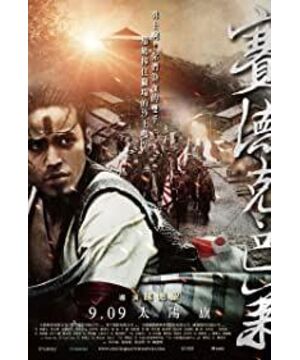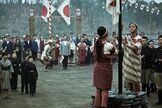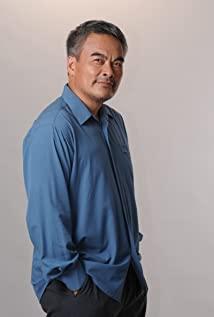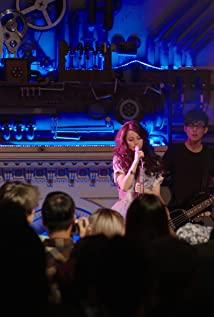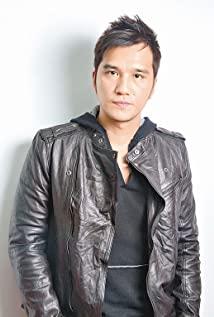Indigenous people have their own unique rules of survival, and the opening scenes of hunting and headhunting intuitively show the audience their rules of survival. When there is no onslaught of foreign crowds, they have a ritualistic respect for headhunting and headhunting. This is their life, men hunting in the mountains, women guarding their homes, waiting for their husbands who return or who never return. Coming-of-age ceremony, dance, folk songs all have the majesty and aura of the mountain. If there is no interference from foreign ethnic groups, they may have always adhered to their own way of life and passed it on from generation to generation. However, the reversal of history and the invasion of modern civilization have brought great changes to the lives of the indigenous people. The irreversible and unstoppable modern civilization, propelled by powerful firepower, instantly insisted on the tradition of the indigenous people for centuries. The ravaged smash.
Since the indigenous people have no concept of a country, but only a concept of race, their contempt for "foreign people" when faced with the Japanese invasion is more like guarding their hunting grounds from being invaded, rather than the lofty sentiments of defending the country. Their struggle against aggression was not initially for freedom, and it was not until the humiliation of their subjugation that the humiliation of their oppression aroused the desire for freedom among the natives.
Mo Na is a witness from primitiveness to humiliation, and as a leader, his tolerance and shame are better than others. However, he endured for decades until he finally led the tribe to launch the Battle of Wushe. The movie does not explain enough about the evolution of the heart of resistance. We may imagine a lion who has been locked up for decades suddenly burst out at the last moment of his life. He misses the freedom of the past, the taste of blood sacrifice, and the boldness of headhunting. Life. The massacre of ordinary people, especially women and children, in the Wushe incident seems to have washed away many forces of justice. Ordinary people caught between oppression and resistance are often victims, and this is not a new diagnosis. Even in ancient China, when the bureaucratic group squeezed the people's fat and the people's ointment, women and children also enjoyed prosperity and wealth. When they fell, women became slaves and children became slaves. It is not uncommon. It is somewhat inappropriate for us to understand the practices and ideals of Taiwan's indigenous people from the perspective of modern civilization. However, just as they cannot get rid of the influence of their own ideas, we cannot retreat from the civilization we wear to integrate into their ideas.
It was the two civilizations that could not be merged that contributed to the massacre of the Wushe to a certain extent.
The film gives as much as possible the differences between indigenous people of all ages and people of each race, trying to use complex human nature and civilization to tell a complex historical event. The director is successful in this regard. Although many characters are flat, the roles of Mona Ludo, indigenous policeman Hanaoka Ichiro, and Bawan are very successful.
Mona Ludao was rebellious in his youth, being both a hero and a leader. There is a scene in the movie that shows his character naked. When they ambushed the members of the Tumbala community, a group of people rushed in front of him and was shot by him. He stared fiercely at the injured tribe and said, "No one can rush in front of me!" When he was young He is domineering, however, after failing to fight against Japan, he reluctantly chose to give in, and he endured for decades. Although he still retains some of the dignity of a leader in middle age, he is still a role that can only beg for help in front of the Japanese police. Seeing the Rainbow Meets the Father's Spirit at the riverside, the animal nature in his heart was thoroughly stimulated, and he walked towards the road of martyrdom. He was the most direct experiencer of the transition from freedom to unfreedom, the direct victim of the transition from a first-level leader to a second-level leader ruled by the Japanese. It's a pity that the movie did not give him more performance space in the character's inner drama. In the second half of the upper part, Mona Ludao completed the sublimation from submission to resistance in the singing, and we also witnessed in those wonderful singing. Bloody outbreak.
Ichiro Hanaoka is the person with the most ambivalence, and he is also the one who handles it better in technique. Sadly, his transition from a Japanese-educated skeptic to a believer in aboriginal spirits is a little abrupt, and we rarely find the exact trajectory of that transition in film. However, even so, he is still one of the rare full-bodied characters in the film, and his inner drama is expressed through body language. And he is also the first generation of contradictions between civilization and civilization collision, that is, is it bad for the Japanese to rule? Is it bad to have modern facilities such as schools and hospitals? He is a beneficiary of the natives ruled by the Japanese, has a decent job - a policeman, has his own residence, and has a happy family. Aside from his Aboriginal label, everything about him is nearly perfect. So, he would wonder, why should we resist? He is a person who has been assimilated by Japanese civilization. However, in the end, he threw himself into the struggle against the Japanese without hesitation, and it was his indigenous label that prompted him to make his final choice. There is one phenomenon that I think it is worth noting that even though Hanaoka Ichiro has a Japanese name, in front of the Japanese police, the biggest question he receives is the ridicule of the tribesmen on the rainy street, and he is not labeled as a "race". Dirk." Perhaps it was because the clansmen did not completely assign it to the hostile side, which gave him the opportunity to hesitate and contradict, and finally chose to stand on the side of Sediq and lead to his final defeat.
Bavan's character is one of the most shocking characters in the movie. It seems no exaggeration to associate him with the Children's Red Crusaders, the Red Soldiers. This character is also the only character in the film without any flaws, the most successful character. This is precisely because the success of children's roles has to make people reflect, and the world of adults will lead children to a road of no return if they are not careful. Little Bawan was bullied at school and his teacher beat him. When the Saibak people revolted, he led the children of the tribe to stab the teacher to death, and stabbed to death the hiding women and children, in the name of blood sacrifice to the ancestors. This is a belief in blood, and a belief in innocence. It is because of his innocence that he will take the lives of others to achieve his heroic reputation without hesitation. Isn't it true that the Children's Red Crusades back then had pure faith in religion? Isn't it true that the red soldiers back then had pure faith in their leaders? In the eyes of children, sometimes blood is pure, and the scene of blood flowing is as exciting as snow, rather than intimidating. When children are inspired by a certain belief, they are more likely to be incited, more likely to be brutalized, and more likely to wantonly kill than adults. When I saw the horror in the eyes of the women and children, including his classmates, when I saw blood splashing red on the doors and windows, my heart was complicated. Little Bawan is both the perpetrator and the victim, and we have to say that the belief is wrong? What can we say other than to say that the wrong thing was done for the faith at the wrong time at the wrong time?
There is a scene in the movie that still fascinates me to this day. The people of Saibak went to the mountain to cut down trees, just in time for the rain to come out. Accompanied by the rainbow, they danced dances they hadn't danced for years, and sang songs they hadn't sung for years. At that moment, they were free. At that moment they were pure, just for the pure heart of the rainbow. How I wish they could keep jumping down, being able to jump freely without blood, murder, or resistance.
However, they have no right to choose, either to be assimilated by civilization in disgrace, or to fight to the death for their "blood" totem of civilization. In an era like that, they had no other choice, and every choice left was for the funeral of freedom.
View more about Sai de ke · ba lai: Tai yang qi reviews


